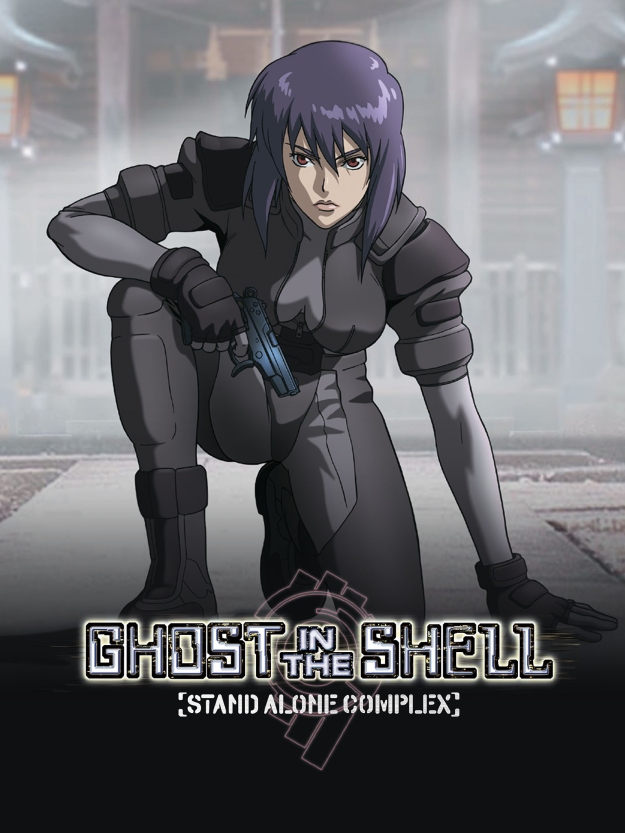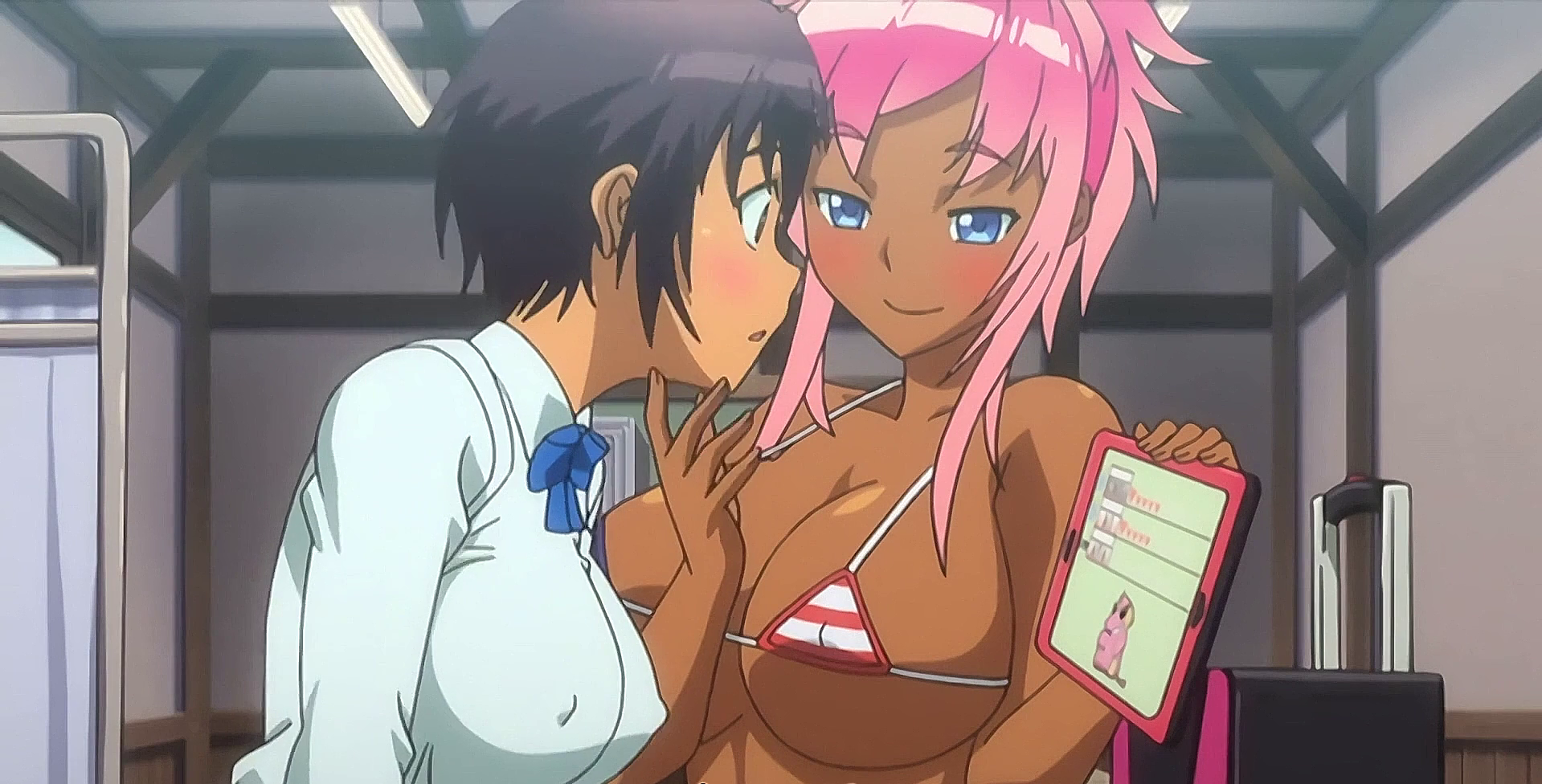
Science Fiction has come a long way from stories involving the unknown reaches of space by the works of Jules Verne and H.G. Wells to stories that draw social implications of our society from famed authors George Orwell and Phillip K. Dick. There is little doubt that anime productions have tackled a lot beneath the limits of the genre ranging from Space Opera to Cyberpunk. One series that is often considered one of the most popular in the anime Sci-fi genre is Ghost in the Shell. After the movie’s success, directed by celebrated director Mamoru Oshii, we now have Ghost in the Shell: Stand Alone Complex, but this time without Mamoru Oshii involved with the production. Considering how well Oshii directed Ghost in the Shell, people were skeptical about whether Stand Alone Complex could get the best out of the movie in quality storytelling and animation. Long story short, it did almost every aspect correctly.
The way the story sets up isn’t just following one main story: the Laughing Man plot arc. Instead, it follows a formulaic style that makes us support the Section 9 team going after various cases worldwide. An argument against the show’s credit is that the Stand Alone episodes deviate from the main focus of the Complex episodes that chronicle the Laughing Man plot arc. I would argue that the Stand Alone episodes are essential to deal with a considerable amount of character development for our main characters. Some of the episodes offer memorable story arcs that aren’t important to the overall narrative. Still, they continuously show how immensely well crafted the writing is in not only the dialogue but of how well put together the world is in the show. What’s so great about the world of Stand Alone Complex is the writers’ subtle details in the account, such as the political and social plateau of how the world works that genuinely make it a living, breathing world and not a superficial one.
As character development goes, Stand Alone Complex stands out because it gives a lot of time to put forth plenty of depth with each on-screen character. It doesn’t just apply to the main characters. Many of the side characters in each episode that we come across have a deep level of characterization to where they aren’t just these one-sided antagonists who do evil. They’re just ordinary people who are in this situation because of the society they’re living in. Each specific main character has their own uniquely written personality that shows their presence in the show. Handled with great care and precision, they all play out so well with each other that they make you care so much for their struggles and relationships as coworkers trying to handle any given situation they meet. Chemistry is crucial in tying together a well-rounded cast of characters and Stand Alone Complex hits the nail on that part exquisitely. Batou and Kusanagi are especially two of the best characters, only by how well the chemistry is between the two from their interactions and personalities.
Many consider the most poignant Ghost in the Shell saga is its music. Outcomes to famed composer Yoko Kanno producing all the music in Stand Alone Complex and providing a profoundly layered texture to the overall atmosphere in the show. Shows typically set in a futuristic setting rely heavily on electronic-sounding orchestration mixed in to feel more natural within the landscape of the environment. While there are indeed a lot of that to experience through the ears, Yoko’s brilliant blend of Jazz, Electronica, and Classical musicianship combine each other amazingly well to give the soundtrack its unique style that she is widely known for. I find Kenji Kawai’s score in the Ghost in the Shell movie left more of a profound impact on me in how it incorporates a lot of dark ambiance into the atmosphere. However, there is no denying the creativity that Yoko put into the score, and ignoring it would be insane when discussing the show.
Usually, anime movies have the upper hand as having stellar animation and art, while TV anime have a limited capacity in the level of budget that film studios have. There are, of course, exceptions to this, and Stand Alone Complex is one of them. Sure the animation isn’t as fluid as the movie. Still, how the art’s quality perfectly compliments the ascetic vision that the artists were going for it’s a real accomplishment to experience. How the city looked, the characters all having a distinct look that makes them recognizable the moment we see them, and how the 3D models of the machines flow with the 2D animation of the characters work with each other sublimely.
It is haphazard to call Ghost in the Shell an action show since it relies heavily on Noir aspects of tone and pacing, unlike in your typical action show, where the pacing is more fast-paced. However, once it does delve into action territory, that is where the animation and sound take it to the next level of technical genius. The fluid motions involving characters fighting each other still hold more to this day than many other action anime in terms of animated fighting sequences and gunfights. The sound effects of machines and gunfire feel authentic and genuine, which puts you on the edge of your seat as you’re transported into the scene. So yeah, as I said, the show on the technical level is surprisingly still amazing to look at as it once was ten years ago.
One other aspect of Ghost in the Shell that is often noted when discussing the series is its profound philosophical themes. The movie delved into the ideas of consciousness and ethics of A.I. At the same time, Stand Alone Complex is mainly centered on political corruption and conspiracy theories that involve the book “The Catcher in the Rye.” The one part where it does delve deeper into is when we follow the Tachikomas and how they describe the “Ghost” in each machine through their A.I. Oddly enough, it works even though these childlike voiced machines seem as though they were there for comic relief. The political themes thrown into the plot don’t have nearly as much impact as the writers thought they would have. The way it’s told through a conventional storytelling style does not try to seem as though they wanted to make a big political statement. That’s not the same as saying that it’s a significant knock on the show, but it’s something that I felt would’ve been much stronger.
Whatever the case, Ghost in the Shell: Stand Alone Complex will surely leave a strong impression on people on what makes a story stand-out as one of the most well-crafted entries in writing great characters and a large detailed world. It is by no means a show that you can like for the action or the great animation because that is only one-third of what makes Stand Alone Complex so deep in its overall philosophy and story. Well-written character progression, great world-building, and fantastic animation all combined into one glorious experience that will inspire anyone who wants to get into writing stories for years to come.
Grade: A

Hi Gonzo-nyan. You have a typo.
“A case against the show’s credit [is] that the Stand Alone episodes deviate the main focus of the Complex episodes that chronicle the Laughing Man plot arc, but I would argue that the Stand Alone episodes are important to deal with a great amount of character development for our main characters.”
You might just wanna rewrite the first half of that sentence though, cause it’s kind of awkward with “deviate” as your verb and that extra clause after the indirect object. I also disagree a bit with the content of the sentence (:P)and felt that a number of the Stand Alone episodes were quite weak (Che Guevara episode comes to mind, lol). Good review doe.
Oh, you might have other typos. I-it’s not like I was p-proofreading or anything—I just happened to notice it, d-dummy~
Sorry, I lied. I meant “prepositional object” not “indirect object.” The person that I asked for the term lied to me, and then I, in my ignorance, lied to you, dear Gonzo.
Thanks for the tip man. I’ll edit it now!